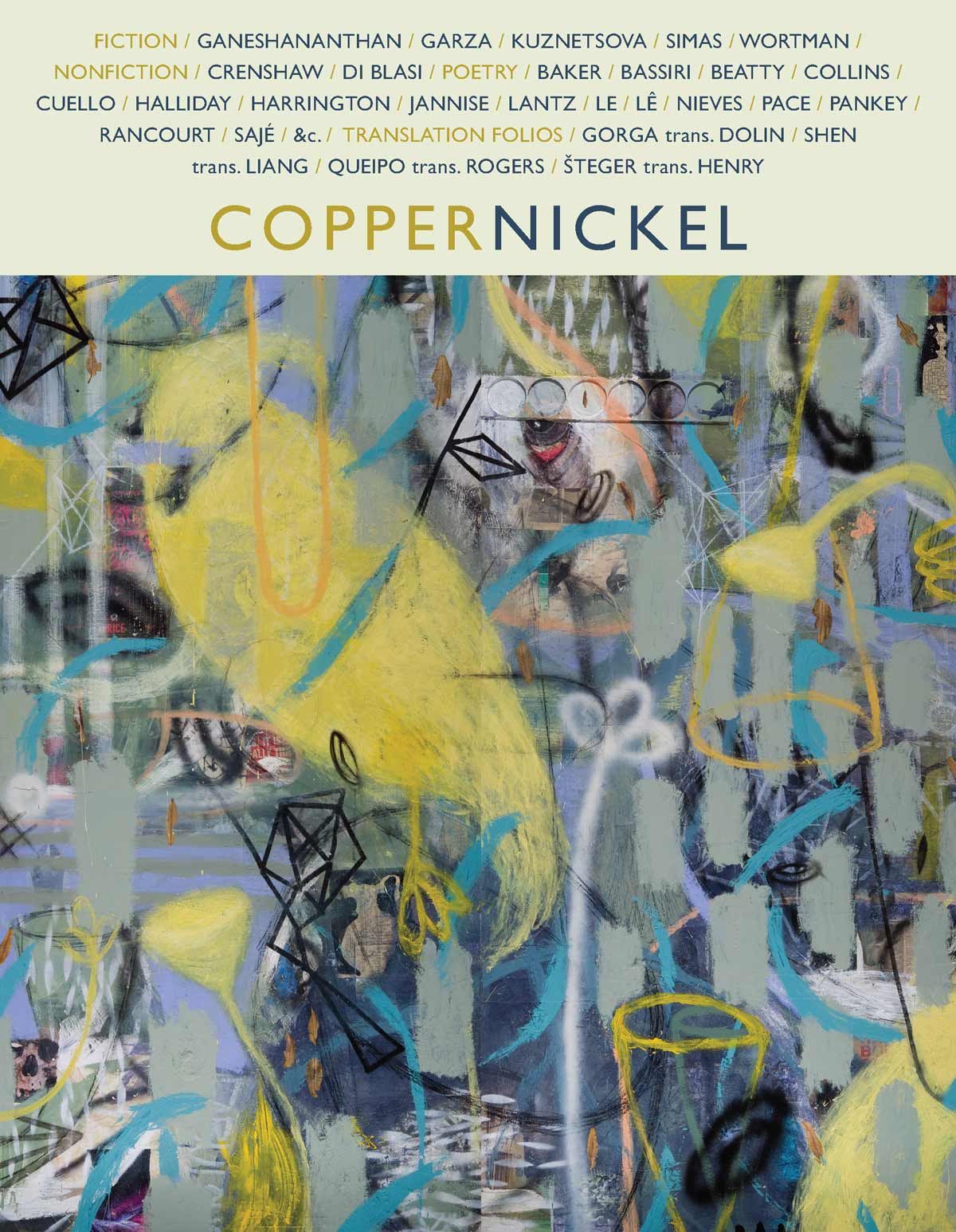1.
In Farsi, I was given the name, but I wasn’t a hero.
In English, I became a white man.
In Farsi, over 2,500 years ago, a new god was found.
In English, there is still only the one God. No one found another.
In Farsi, if you take bread from a verb, you make history.
In English, for a perfect past, it isn’t enough to exist, you must have things.
In Farsi, the present isn’t so simple.
In English, the simple past isn’t so simple.
In Farsi, you can assume who’s behind what happened.
In English, you need to catch them in the act.
In Farsi, enemy is the vice that ends with me.
In English, enemy is a friend that isn’t me.
2.
In English, I was taught the author is dead. I was free.
In Persian, I learned fanaa: to kill the self and serve it to God.
In English, what you have doesn’t follow you into the present.
In Persian, my past is imperfect.
In English, we capture with an army of nouns.
In Persian, we guard them with the veil of adjectives.
In English, “I celebrate myself.”
In Persian, “Children of Adam are members of one body.”
In English, we are proud and stand by what we do.
In Persian, everything gets in the way of our deeds.
In English, I hear the cuckoo asking “Who?” “Who are you?”
In Persian, I hear the owl asking “Where?” “Where is He?”
